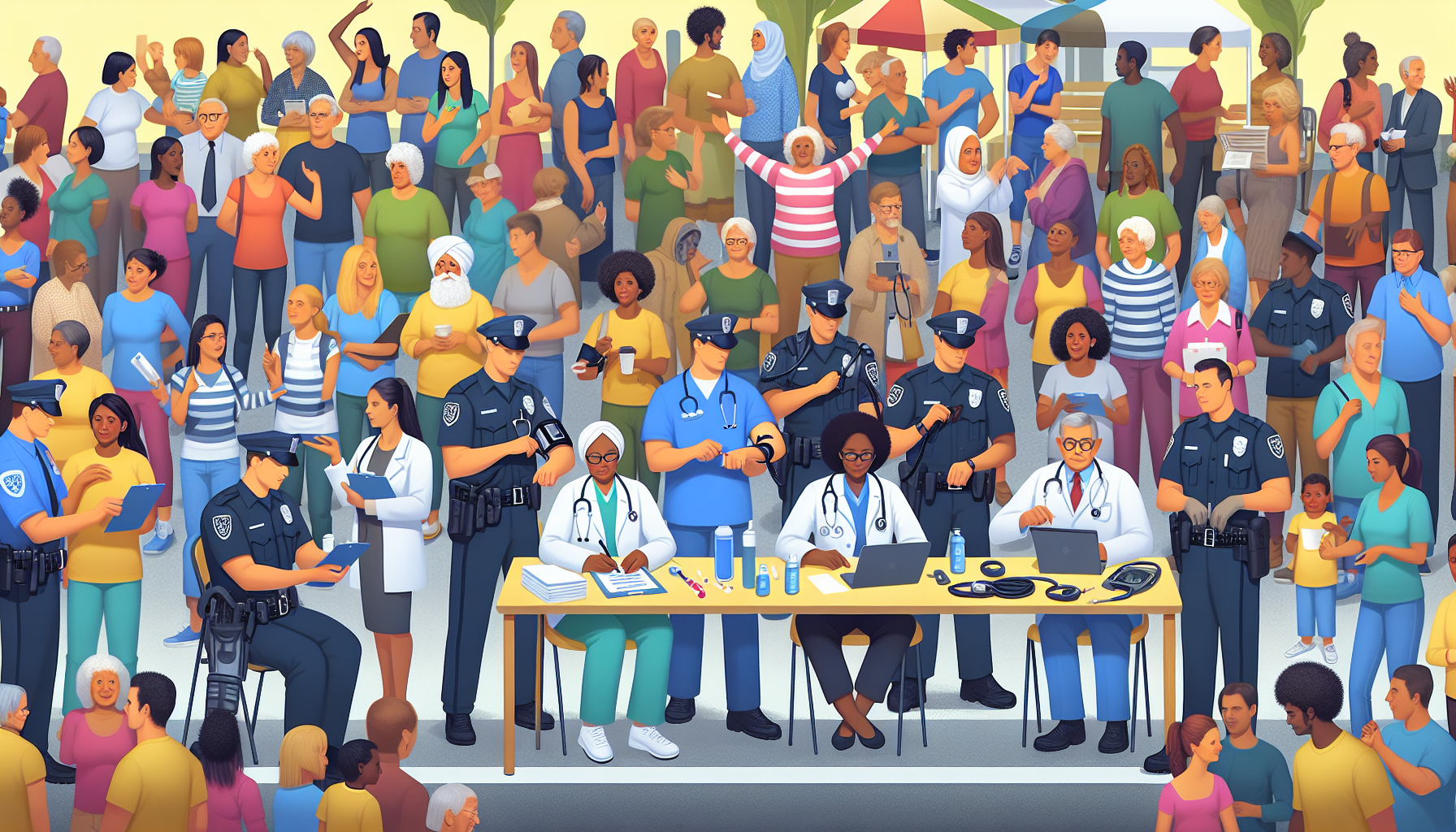Forensic Nursing Unveiled: The Unsung Heroes of the Justice System

Forensic nurses are trained to care for patients who have experienced trauma or violence while simultaneously gathering evidence for legal proceedings. Their responsibilities can include: 1. **Victim Support**: Forensic nurses provide compassionate care to victims of assault, abuse, or other violent crimes. They are often the first healthcare professionals to interact with a victim, offering medical assistance and emotional support during a traumatic time. This initial contact can be critical in ensuring that victims feel safe and supported, which can aid in their recovery. 2. **Evidence Collection**: One of the most critical roles of a forensic nurse is the collection of evidence. This can include documenting injuries, collecting physical evidence such as clothing or bodily fluids, and photographing injuries. Their meticulous attention to detail is crucial, as the evidence collected can significantly impact legal outcomes. Forensic nurses are trained to follow strict protocols to preserve the integrity of evidence, which can be pivotal in court. 3. **Testifying in Court**: Forensic nurses may be called upon to provide expert testimony in court. Their ability to explain medical findings and the implications of trauma in a clear and credible manner is invaluable in legal proceedings. The credibility of their testimony can influence juries and judges, thereby shaping the outcome of cases. 4. **Collaboration with Law Enforcement**: Forensic nurses often work closely with law enforcement agencies, providing crucial insights that assist in investigations. They may be involved in multidisciplinary teams that include police officers, social workers, and legal professionals. This collaboration ensures a holistic approach to addressing the needs of victims and the complexities of legal cases.
Real-Life Case Studies
To further illustrate the impact of forensic nursing, consider the following real-life cases: - **The Case of Jane Doe**: In a high-profile sexual assault case, a forensic nurse was instrumental in the collection of evidence that ultimately led to the conviction of the perpetrator. The nurse's thorough documentation of the victim's injuries and the collection of DNA evidence from the crime scene provided irrefutable proof that was pivotal in the trial. This case highlights how forensic nurses can make a tangible difference in the pursuit of justice. - **Domestic Violence Survivor**: A forensic nurse working in a hospital setting treated a domestic violence survivor who presented with multiple injuries. Beyond providing medical care, the nurse recognized the signs of ongoing abuse and connected the victim with social services and legal resources. This proactive approach not only addressed the immediate medical needs but also helped the victim escape a dangerous situation. These examples underscore the essential role that forensic nurses play not just in the healthcare system, but in the broader context of social justice.
The Importance of Forensic Nursing
Forensic nursing is more than just a career; it is a calling that requires a unique blend of medical expertise, empathy, and a commitment to justice. Forensic nurses are often on the front lines, dealing with the aftermath of violence and trauma. Their work is crucial not only in supporting victims but also in ensuring that justice is served. Moreover, the field of forensic nursing is continually evolving. With advances in technology and changes in the legal landscape, forensic nurses must stay informed and adapt their practices accordingly. Ongoing education and training are essential for success in this dynamic field. Many forensic nurses pursue certifications and specialized training to enhance their skills, making them even more effective advocates for victims.
Networking and Career Opportunities
For those interested in pursuing a career in forensic nursing, networking plays a significant role in finding job opportunities. Platforms like LinkedIn can be invaluable in connecting with professionals in the field. Key job titles to look out for include: - Forensic Nurse Examiner - Sexual Assault Nurse Examiner (SANE) - Forensic Nurse Investigator - Clinical Forensic Specialist Additionally, organizations such as the International Association of Forensic Nurses (IAFN) provide resources, certifications, and networking opportunities for aspiring forensic nurses. Engaging with these communities can help individuals find jobs and connect with mentors in the field.
Forensic nurses are unsung heroes in the healthcare and justice systems. Their multifaceted roles encompass patient care, evidence collection, court testimony, and collaboration with law enforcement. The real-life case studies discussed in this article underscore the profound impact that forensic nurses have on individual lives and the broader justice system. As awareness of this vital profession continues to grow, so too does the recognition of the essential role that forensic nurses play in advocating for victims and upholding justice. Their contributions not only provide immediate support but also pave the way for lasting change in how society addresses issues of violence and trauma. Forensic nursing is not merely a job; it embodies a commitment to healing and justice, making it an invaluable profession in today's world.
Sexual Assault Nurse Examiner (SANE)
Core Responsibilities
Conduct comprehensive forensic examinations on survivors of sexual assault, including the collection of evidence and documentation of injuries.
Provide emotional support and crisis intervention to victims, ensuring they understand the process and their options.
Collaborate with law enforcement and legal professionals to ensure that evidence is handled and presented appropriately in court.
Required Skills
Strong knowledge of trauma-informed care and legal aspects of sexual assault cases.
Excellent communication skills for interacting with victims and testifying in court.
Certification as a SANE through organizations like the International Association of Forensic Nurses is often required.
Common Employers
Hospitals
Specialized sexual assault treatment centers
Advocacy organizations
Forensic Nurse Investigator
Core Responsibilities
Investigate cases involving potential criminal activity, gathering evidence from various sources including medical records and witness statements.
Analyze and interpret forensic evidence to assist law enforcement in case investigations.
Prepare detailed reports and may also provide expert testimony regarding findings in court.
Required Skills
Background in nursing, ideally with additional training in forensic science or criminal justice.
Strong analytical skills and attention to detail for evidence analysis.
Experience in law enforcement or criminal justice settings can be beneficial.
Common Employers
Law enforcement agencies
Medical examiner offices
Legal firms specializing in criminal cases
Clinical Forensic Specialist
Core Responsibilities
Provide specialized care to patients who have experienced violence or trauma, integrating medical treatment with forensic principles.
Conduct risk assessments for patients and develop safety plans, ensuring both physical and emotional wellbeing.
Train and educate healthcare staff on forensic nursing practices and the importance of evidence collection.
Required Skills
Advanced clinical nursing skills with a focus on trauma care.
Strong interpersonal skills for effective communication with patients and multidisciplinary teams.
Certification in forensic nursing or a related field is often preferred.
Common Employers
Hospitals
Community health organizations
Academic institutions
Forensic Psych Nurse
Core Responsibilities
Assess and treat patients with mental health issues related to trauma and violence, often within legal contexts such as competency evaluations.
Collaborate with legal teams to provide assessments that may influence legal outcomes.
Engage in court testimony regarding the mental health status of individuals involved in legal cases.
Required Skills
Advanced understanding of psychiatric nursing alongside forensic principles.
Strong skills in crisis intervention and risk assessment.
Licensure as a psychiatric nurse practitioner or clinical nurse specialist may be required.
Common Employers
Psychiatric hospitals
Correctional facilities
Private practice settings
Forensic Nursing Educator
Core Responsibilities
Develop and teach forensic nursing courses at academic institutions, focusing on the intersection of healthcare, law, and ethics.
Mentor nursing students and professionals interested in pursuing forensic nursing as a career.
Conduct research and publish findings related to forensic nursing practices and advancements.
Required Skills
Advanced degrees in nursing or a related field, with a focus on forensic nursing.
Strong teaching and presentation skills, with experience in curriculum development.
Active involvement in forensic nursing organizations and continuous professional development.
Common Employers
Universities
Colleges
Professional training organizations


